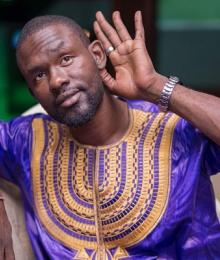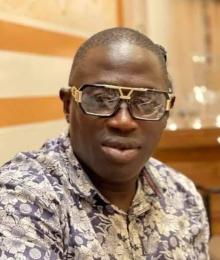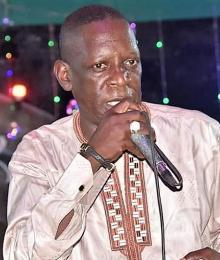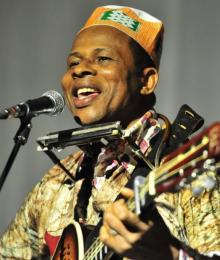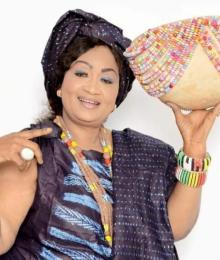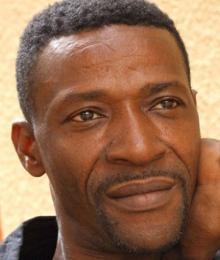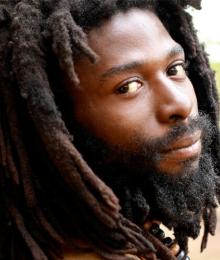
Takana Zion, whose real name is Mohamed Mouctar Soumah, is an internationally acclaimed Guinean reggae singer. Born on June 30, 1986 in Conakry, this committed artist became known for his striking lyrics denouncing social inequality and corruption, as well as for his electrifying stage presence.
Takana Zion, the voice of marginalized peoples, has transcended borders with her unique music combining reggae, afrobeat and traditional West African rhythms. Despite the challenges he encountered, he remained determined to use his art to promote positive change, both in his home country and internationally. A cultural ambassador of Guinea, he is now regarded as one of the most influential and inspiring voices on the global reggae scene.
Introduction
Takana Zion, whose real name is Mohamed Mouctar Soumah, is an internationally renowned Guinean reggae singer. Born on June 30, 1986 in Conakry, he gained worldwide fame thanks to his committed speeches on social issues and his powerful stage presence. From an early age, Takana Zion was immersed in music and began writing her own songs as a teenager. His texts often cover themes such as poverty, inequality and political corruption, which has earned him a reputation as a militant artist, able to inspire his audience to act for positive change.
Childhood and Education
Originally from Conakry, the capital of Guinea, Takana Zion grew up in an environment marked by poverty and political unrest. Despite these challenges, his passion for music only strengthened over the years. From an early age, he integrated into the local stage of Guinean rap and dancehall, where he became known and respected.
As a teenager, Takana Zion had already developed a reputation as a talented and socially engaged artist. His early experiences in Guinea shaped his music and message, making him a voice for the marginalized and oppressed in his community and beyond.
Musical career
Beginnings in Guinea
Takana Zion began his musical career in the Conakry underground circles, where he became known for his energetic style mixing rap, dancehall and reggae. His striking speeches, dealing with issues such as poverty and corruption, quickly earned him a strong fan base in his home country.
Mali stage
In the early 2000s, Takana Zion decided to move to Mali, where he hoped to develop his musical skills and expand his audience. It was in Mali that he met and collaborated with artists such as Tiken Jah Fakoly and Manjul, who detected his talent and took it under their wings.
Takana recorded the equivalent of two albums for Tiken Jah Fakoly, but these projects will not eventually come true. Gradually, he gained maturity and artistic independence. It was during this period that he decided to return to Manjul, with whom he recorded his first official album, "Zion Prophet", released at the end of 2006.
France stage
After building a respectable reputation in Mali, Takana Zion decided to expand its reach to an international audience by settling in France. In 2007, he released his first album, "Zion Prophet", which received a favorable critical reception and helped him build an audience in Europe. He continued to perform at various venues and festivals in France, including at the prestigious Festival des Vieilles Charrues.
Takana Zion's unique music, mixing reggae, afrobeat and traditional West African rhythms, resonated with a cross-cultural and multilingual audience. Takana Zion started preparing her second album, scheduled for 2009.
Jamaican Experience
A dream became a reality for Takana Zion when he was invited to Kingston, Jamaica by Sam Junior Clayton, a member of the Mystic Revelation of Rastafari. During his stay on the island of Bob Marley, the Guinean artist recorded the album "Rasta Government", in collaboration with several prominent Jamaican musicians, including Capleton on the title "Glory".
Success in Guinea
Despite his international flight, Takana Zion remained deeply attached to his Guinea roots. His music has become a symbol of hope and empowerment for many Guineans, especially young people. He has used his platform to address critical social and political issues, such as corruption and police violence, as a human rights spokesman in his country.
In parallel with her musical career, Takana Zion has also engaged in philanthropic initiatives to promote education and entrepreneurship in Guinea, offering young people prospects for the future and the opportunity to have a positive impact in their communities.
Global success
After gaining a solid fan base in Europe, Takana Zion's music began to spread around the world. In 2008, he performed on many European stages, thus exposing his music to an even wider audience.
His second album, "Rappel à l'Ordre", released in 2009, consolidated his status as a rising star in the music industry. This opus features collaborations with other renowned African artists and highlights the unique mix of musical influences of Takana Zion.
The album was acknowledged by critics and helped to further increase the international recognition of the Guinean artist. Takana Zion's success has continued to grow over the years, leading her to perform at various festivals and musical events around the world, including the prestigious WOMAD Festival in the UK.
His music has been praised for its powerful messages of social justice and its ability to merge traditional African rhythms with modern sounds. Today, Takana Zion is regarded as one of Guinea's most influential and important musicians, continuing to inspire crowds around the world with his dedicated music and unwavering dedication to the cause of social justice.
Albums
- 2007 : Zion Prophet
- 2009 : Rappel à l'Ordre
- 2012 : Black Mafia I
- 2013 : Black Mafia II
- 2014 : Black Mafias III
- 2015 : Black Mafias IV
- 2016 : Black Mafias V
- 2017 : Black Mafia VI
- 2018 : Black Mafias VII
- 2011 : Rasta Government
- 2012 : Kakilambe
- 2014 : Ningué Férii
- 2014 : Khamai Toki Wouyah
- 2016 : Good Life
- 2021 : Human Supremacy (Soulbeats)
Singles
- Depui Assiingé (2006)
- Sweet Words (2006)
- Jeune Fille (2009)
- Kota Kota (2010)
- Samson (2010)
- Chant ft Xuman du Sénégal (2010)
- Natural Reggae (2010)
- Jah Jah Time (2010
- Emanuel (2012)
Videos
- Depui Assiingé (2006)
- Sweet Words (2006)
- United Voice of Africa (feat. Majul, Mic Mo, Dreadlam, Ladji, Kokotangjah, Jahman, Bishob et DJ Lion) (2006)
- Wo Coupe Tonguo (2007)
- Need U Tonight (2008)
- Jeune Fille (2009)
- Mama Africa (2009)
- La Paix En Guinée (feat. DJ Oudy) (2010)
- Guinean Gyal (2010)
- Joyful Vibes (2010)
- Police (2010)
- La Paix En Guinée (feat. Tiken Jah, Duggy Tee, S. Bambino, Moussa, Awadi, Mory Kanté, Elie...) (2011)
- Glory (feat. Capleton) (2011)
- Emanuel (2012)
- Hassali (feat. Aïcha Koné) (2012)
- Aminata (2013)
- Jah Children (2013)
Tours and festivals
Takana Zion has forged a solid reputation as an electrifying stage artist, with his crowded performances attracting large crowds at festivals and concerts around the world. He has been the poster head of major events such as the Sierra Leone Music Festival and the Sun Ska Reggae Festival in France, not to mention his numerous shows in more intimate rooms of his hometown, Conakry.
In addition to her own tours, Takana Zion has collaborated with other artists for joint tours including a very successful race alongside her Guinean compatriot Mory Kanté.
Her stage performances testify to her devouring passion for music and her incredible ability to connect with the most diverse audiences. Whether performing in a huge arena or in a modest club, Takana Zion consistently offers the best of itself, leaving fans galvanized and inspired.
Thanks to his talent and unwavering dedication, it is no surprise that Takana Zion has become a highly sought-after artist on the stages of festivals and concert halls around the world.
Entrepreneur
Fidèle à son engagement envers le développement socio-économique de la Guinée, le célèbre artiste Takana Zion a récemment concrétisé une ambitieuse initiative entrepreneuriale baptisée Zion City. Ce vaste projet représente bien plus qu'un simple complexe hôtelier et culturel.
Inauguré le 19 avril 2023 en présence d'éminentes personnalités et de ses fidèles fans, Zion City se veut une véritable communauté intégrée, située dans la préfecture de Coyah. Combinant harmonieusement les fonctions d'hôtel, de centre culturel et de lieu de vie, cette réalisation visionnaire témoigne de la volonté de Takana Zion de créer un espace propice à l'épanouissement et au rayonnement des arts et de l'entrepreneuriat guinéens.
Loin de se cantonner à sa carrière musicale à succès, l'artiste reggae engagé s'impose ainsi comme un acteur économique incontournable, soucieux d'insuffler une nouvelle dynamique de développement durable dans son pays. Zion City représente un investissement majeur, fruit de la détermination et de l'esprit pionnier de Takana Zion, qui aspire à ouvrir de nouvelles perspectives pour les talents créatifs et les entrepreneurs guinéens.
En misant sur le tourisme culturel et en promouvant l'économie locale, cette initiative ambitieuse démontre l'attachement indéfectible de l'artiste à ses racines guinéennes et son désir de laisser un héritage durable pour les générations futures. Zion City symbolise l'engagement de Takana Zion à conjuguer son art avec l'entrepreneuriat pour un avenir meilleur en Guinée.
Legacy
Awards and recognition
Takana Zion's hard work and immense talent have been repeatedly praised throughout his prolific career. In 2016, he was awarded the Best African Reggae Artist Award at the All Africa Music Awards, and was also nominated for several other prestigious awards, such as the Kora Awards and the MTV African Music Awards.
In addition to his musical achievements, Takana Zion has also been recognized for his philanthropic work, in particular his efforts to promote education and support children in Guinea.
His legacy as a committed and humanitarian musician continues to inspire his fans and peers, making him a dear figure in the global reggae community. Among his major awards are:
- 2021 : Best album of the year at the Victoires de la musique guinéenne
- 2022 : Best male artist of the year at the Victoires de la musique guinéenne
- 2022 : African artist of the year at the Victoires du reggae
Impact on the reggae scene
Takana Zion's impact on the reggae scene has been immense, notably in his native country, Guinea, where he has largely contributed to the popularization of this musical genre and to attracting attention to the African Reggae movement.
His unique style, brilliantly combining traditional African rhythms and the influences of Jamaican reggae, earned him a dedicated fan base and inspired many other musicians to explore similar artistic paths.
Takana Zion's unwavering commitment to social justice and its emphasis on the emancipation of marginalized populations have also found a powerful echo among audiences, making his music a formidable tool for promoting positive change.
As he continues to shoot and record new opus, Takana Zion will surely leave an indelible mark on the global reggae scene and beyond. His dedication to his art and his community makes him a true source of inspiration for all those who aspire to use their talents for the common good.
Impact in Guinea
Takana Zion's impact on his native country, Guinea, is simply invaluable. His music has become a symbol of hope and emancipation for countless Guineans, especially the younger generations.
He used his stand to raise major social and political issues, such as corruption and police brutality, becoming a fierce defender of human rights. Takana Zion has also been committed to promoting education and entrepreneurship in Guinea, providing young people with prospects for the future and the opportunity to make a positive impact on the future of their communities.
His immense success as an international artist has helped shed light on Guinea's rich cultural heritage, thus contributing to the country's global promotion.
Despite the many obstacles he encountered on his way, Takana Zion remained unwaveringly determined to move lines through his music. His tireless perseverance and commitment made him a beloved and influential figure on the international music scene.
Private life
Despite being widely known for her artistic and militant work, Takana Zion has alwaysined a certain reservation about the details of her private life. It is known, however, that he remains deeply attached to his Guinea roots and to his family based in Conakry.
Between two international tours, the artist likes to return to his hometown in order to resource and get closer to his loved ones. This is where he drew much of his inspiration to continue to create music rooted in the social realities of his country.
Conclusion
To conclude, Takana Zion stands as a major figure in contemporary reggae music, bringing a unique and militant voice that resonates well beyond the borders of Guinea. Her journey, rich in challenges and achievements, makes her a model of inspiration for younger generations, demonstrating that with hard work, determination and a strong ethic, it is possible to transcend obstacles and use her art to provoke change.
Despite its immense international success, Takana Zion remains deeply rooted in its Guinean culture, never losing sight of its roots and its desire to improve the socio-economic conditions of its home country. It is this authentic connection with his origins that gives such power and such sincerity to his engaged music.
Whether he continues to ignite scenes around the world or invest his time and energy in philanthropic causes, Takana Zion leaves an indelible mark wherever he goes. Her legacy as a committed and humanitarian artist transcends the musical genres to make her a true ambassador of peace, social justice and positive change.
His incredible journey, from the disadvantaged neighborhoods of Conakry to the biggest international scenes, is a real lesson of life and perseverance. Takana Zion proves that with a clear vision, hard work and a sincere commitment to her convictions, it is possible to realize her boldest dreams.
As his brilliant career continues, there is no doubt that Takana Zion will continue to inspire present and future generations with its authenticity, passion and musical activism. It will forever remain a symbol of the incredible transformative power of music, capable of bringing people together, transcending borders and breathing the hope of a better world.












